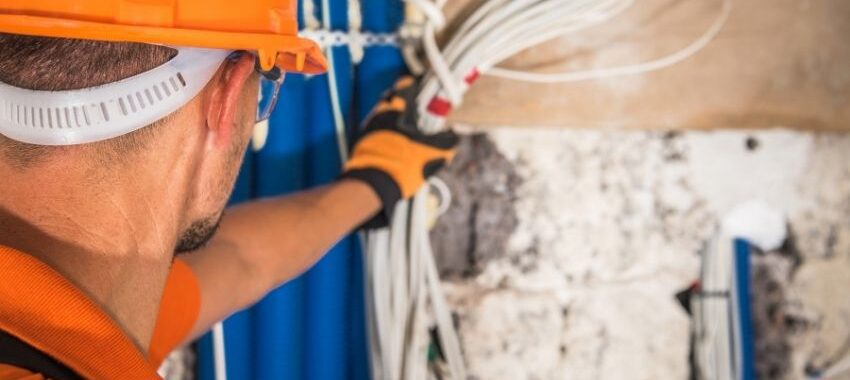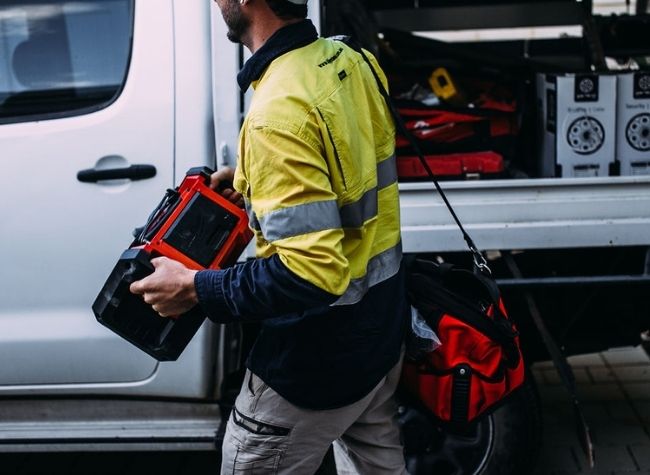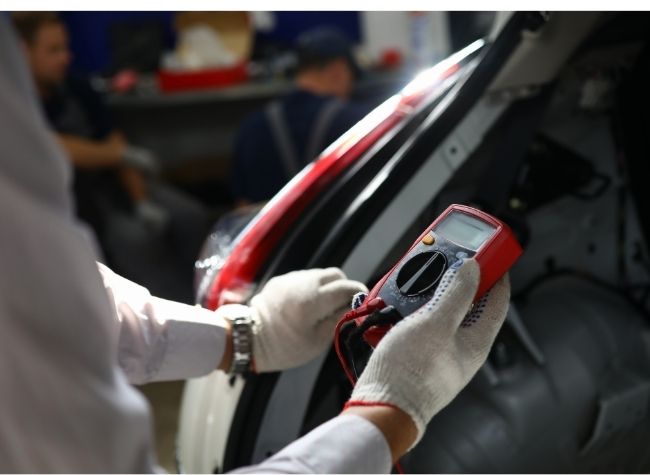
Electrician Insurance | 4 Best Plans for Protection
Whether you are a Mom and Pop, Small Business, or Electrical Contractor, it’s critically important to have the right insurance coverage if and when things go wrong. Electrician insurance should be your priority.
Most electricians spend a lot of time and resources while building their business, and unfortunately, your business could be gone in the blink of any eye.
Don’t take that chance! Electrician insurance is affordable and the best way to mitigate the risks your business faces every day. Claims can happen on the way to the job site, at the job site, and weeks or months after the job’s been completed.
Having a general liability policy in place is a good start but simply not enough coverage to fully protect your business and employees.
When you’re shopping for electrician insurance, there are 4 best plans for protecting what you’ve invested your time and money building for the future.
General Liability

Your general liability coverage should be considered the foundation of your commercial insurance package. In fact, many states will not issue a license without proof of this important coverage.
Your general liability coverage will provide you with the coverage you need when:
- You are sued for causing bodily injury or property damage. These suits generally result when a customer or other third party is injured at a job site as a result of your operation at the business or residence. Not only will the insurance company pay your defense costs, but your policy will also pay any monetary judgment awarded by the court.
- You are sued by a customer for bodily injury or property damage if an incident happens after the job is completed. For example, because of your electrical work, a customer’s residence or building is damaged by a fire caused by your work.
- You are sued by a third party who alleges that you committed libel or slander against them or committed some act of invasion.
- You are sued by a customer or third-party who alleged that you either by oral or written advertisement disparaged, libeled, or slandered that person or their products or services.
- You are sued by a landlord for fire damage done to premises you are or have rented from them.
Finally, do not take the cheap route by purchasing a policy with insufficient limits. Anything less than a million dollars in coverage could leave you paying out-of-pocket after being found liable by the court.
Workers’ Compensation

In many states, an electrician cannot get a license without proof of Workers’ Compensation insurance coverage. Even if you have no employees, a workers’ comp policy should be purchased as part of your insurance package.
Without it, you could be sued by an employee or contractor for job-related injuries or illnesses. In the states where workers’ comp is required, there is typically a stiff penalty charged if the business is found not to have a Workers’ Compensation policy in place.
Commercial Auto Insurance

Whether your business uses one or ten vehicles, these vehicles must be insured under a commercial auto policy, not a personal auto policy. Since most personal auto policies will exclude coverage on any vehicle used for business, it makes sense not to risk using a personal vehicle insured under a personal auto policy.
Moreover, most personal auto policies will not offer the higher limits you’ll need to protect you and your business. Most large companies today, require any contractor on the premises and even in a parking lot, must have at least $1 million commercial auto coverage.
Additionally, there is typically no limit on the number of units or drivers to be insured. Try getting 8 pickups or vans insured under a personal auto policy. Not going to happen.
Although some carriers will offer up to $2 million limits, an inexpensive commercial umbrella policy can be added to increase your commercial auto limits and your general liability limits to $5 million or even $10 million.
What about Your Tools and Equipment – Get Inland Marine Coverage

During my years as a commercial risk manager, I was surprised how many times a client thought their tools and equipment in the van or truck were covered under their commercial auto policy. Not so.
The Inland Marine policy is the best and most affordable method to insure your tools and equipment against theft, loss, and damage from a covered peril. Your inland marine policy will protect your tools and equipment while in transit, at the job site, or while being stored in a trailer, vehicle, or warehouse.
Electricians use many specialty tools, meters, stud finders, and other specialty equipment on almost every job site. These tools and specialty equipment can get expensive and having a trailer full of tools and equipment stolen would make a major impact on your bottom line.
What if Your Jobs Require Drawings, Specs, or Structural Changes?

If your electrical services involve more than the standard electrical services, a Professional Liability Policy should be considered as well.
When you offer professional services like those mentioned above, you’ll need to mitigate your risk of a lawsuit if something goes wrong as a result of the professional services you rendered.
For example, if you were to wire a small apartment building and because of your specs a fire started and the building burnt down, your company would be protected up to the limit of your policy for the damage done and defense costs.
The Bottom Line
If, after reading this article, you would like a commercial lines expert to review your current commercial insurance package, you’ll find qualified insurance professionals who specialize in contractors at Fairbanks Insurance Brokers.
Even if you want to shop policies you already have, call the professionals at Fairbanks and ask them to review your policies as far as coverage provided and premiums charged.
Here is What We Recommend
General Liability: Contractors General Liability will be the foundation of protection for your business. The coverage will respond if you or your employees are found liable for bodily injury, property damage, or have a products/completed operations complaint. The coverage also covers defense costs for your business to respond to any lawsuits brought by a third party.
Workers’ Comp: Many states will require contractors to provide workers’ compensation coverage for their workers before they can begin a project. Accidents will happen at the job site that can result in an employee becoming injured and missing work. Your workers’ compensation coverage will provide financial assistance for medical expenses and lost wages.
Surety Bonds: It’s very likely that your state will require you to be licensed before you can begin operations. Most states and customers will require contractors to offer a license or surety bond before you are allowed to bid on a job or begin working.
Commercial Auto: Typically, most contractors will have light and heavy vehicles that require commercial auto insurance to make certain their vehicles can be repaired or replaced in the event of an accident, vandalism, or theft.
Tool Coverage: Also known as Inland Marine Insurance, this policy will provide for reimbursement for expenses to repair or replace tools and equipment. Your tools represent an important part of your livelihood, so we always encourage carpentry contractors to consider this valuable coverage.
Get A Quote

